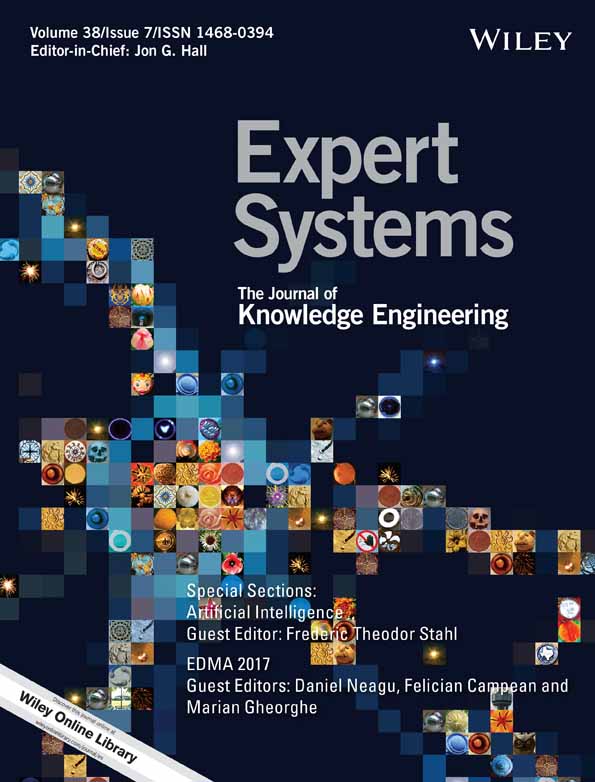Engineering Data- & Model-Driven Applications: EDMA-2017 special issue editorial
EDMA-2017, the first International Workshop on Engineering Data- & Model-driven Applications, was held in conjunction with the 10th IEEE International Conference on Cyber, Physical and Social Computing (IEEE CPSCom-2017). EDMA-2017 provided authors a forum for presentations, discussions and sharing of current challenges, knowledge, expertise and solutions regarding trends and technologies for the use of data and computational models for dealing with complexity in industrial, engineering, cyber-physical and related domains.
Contributions to the EDMA-2017 included relevant studies from across engineering, computer science and data science researchers on data (knowledge discovery, machine learning, big data analytics) and model-based methods (e.g. engineering and hybrid models for systems reliability, degradation and vehicle health management) delivering effective and efficient solutions to challenges associated with handling complexity in real-world engineering and industrial applications.
Selected extended contributions are included in this special issue, authored by multidisciplinary international teams of researchers and focussing on cutting edge technologies in industrial environment image segmentation, application of neural networks for high-speed train wheel wear classification, and manufacturing job shop planning with hybrid machine learning. The list of selected papers includes:
An ordered sparse subspace clustering algorithm based on p-Norm: the authors Liping Chen, Gongde Guo and Hui Wang extend initial work on noise-resilient sparse subspace clustering algorithm for image sequences and propose a new approach to effective clustering of sequential image data under heavy noise conditions, characteristic for industry environments, requiring video scene segmentation. The contributions use the wavelet-histogram of oriented gradient transform in the kernel view to extract from source images global features using wavelet processes, and local features in an optimized weighted form of a coefficient matrix, and denoising component techniques with Laplacian constraints.
Analysis and prediction of high-speed train wheel wear based on SIMPACK and backpropagation neural networks: the authors Shuwen Wang, Hao Yan, Caixia Liu, Ning Fan, Xiaoming Liu and Chengguo Wang use a combination of engineering model-based dynamic simulation with real-world wear measurements to deliver predictive solutions for important aspects of safe operation of high-speed trains. Wheel wear is studied using SIMPACK dynamic models of high-speed train carriages and backpropagation neural network classifiers based on measurement data. By investigating normal and lateral contact forces of wear of wheels, and wheel-rail interfaces, and integrating real-world data with SIMPACK dynamic simulations and machine learning classifiers, the contributors provide insights useful for maintenance and safe operation of high-speed trains.
Job shop planning and scheduling for manufacturers with manual operations, authors: Longzhi Yang, Jie Li, Fei Chao, Phil Hackney, Mark Flanagan study the manual collate and pack area completion time estimation for Point of Sale and Point of Purchase Manufacturing Scheduling for optimisation of machine use in the manufacturing industry. The authors build on searching the most cost-effective permutation of job operations based on the cost of each operation on the compatible machine and the relations between job operations. The contributions include algorithms for a new genetic algorithm for scheduling that integrates fuzzy learning and inferences for completion time estimation and expert in the loop initialisation and adaptive learning processes.
The EDMA-2017 chairs and special issue editors thank authors, organisers and readers for the passion and contributions to apply machine learning research to engineering applications.
Biographies
Dr Daniel Neagu is Professor of Computing and a successful AI/ML/big data analytics scientist with 20+ years of research project leadership funded by national, international research programmes, also national and international industry. Professor Neagu leads Bradford's AI Research (AIRe) Group and has research expertise in Explainable AI, Machine Learning and big data algorithms, responsible data and model governance, and their applications in healthcare, predictive toxicology and engineering. Daniel Neagu has chaired a number of international conferences in data science and AI (eg IEEE DSS 2018, UKCI 2014), and is founder of the series of the International Workshop on Engineering Data- & Model-driven Applications (EDMA 2017-2021).
Felician Campean, PhD, FRSS, is a Professor of Reliability Engineering and Director of the Automotive Research Centre at the University of Bradford, UK. He is an internationally recognised expert in reliability, and has established an extensive track record of research and knowledge transfer with the global automotive industry, spanning over 24 years. His current research interests include the development of novel model-based and data-driven approaches to enhance reliability and resilience of complex multi-disciplinary systems, throughout their lifecycle. He has co-founded the Advanced Automotive Analytics research laboratory in 2016, and currently leading a significant portfolio of projects driving the application of ML and AI to real world engineering problems.
Dr Marian Gheorghe is Professor of Computational Models and Software Engineering at University of Bradford. Professor Marian Gheorghe's research interests are in computational models and software engineering. He has a special interest in new classes of unconventional computational models, especially membrane systems and their connections with other (unconventional) computational models - Petri nets, process algebras, L-systems, reactive systems etc. He is also interested in formally verifying such models by using model checking approaches. Professor Gheorghe is also interested in model-based testing and connections with formal verification. He has been working with large scale simulations, based on formal models, and contributed to building adequate software platforms for such approaches. He is also interested in applications of formal specifications and formal verification methods and tools in computational and synthetic biology, but also in autonomous systems. He served as the Chair of the Steering Committee of the Conference on Membrane Computing between 2010 - 2014, the main research forum of the membrane computing community, editing the proceedings of these events with Springer, in Lecture Notes in Computer Science Series. He has connections and active collaborations with many prestigious Universities and research groups in the world. Professor Gheorghe's research has been funded by EPSRC, EU, Royal Academy of Engineering, British Council and has been included in some international projects abroad as scientific advisor and collaborator.




